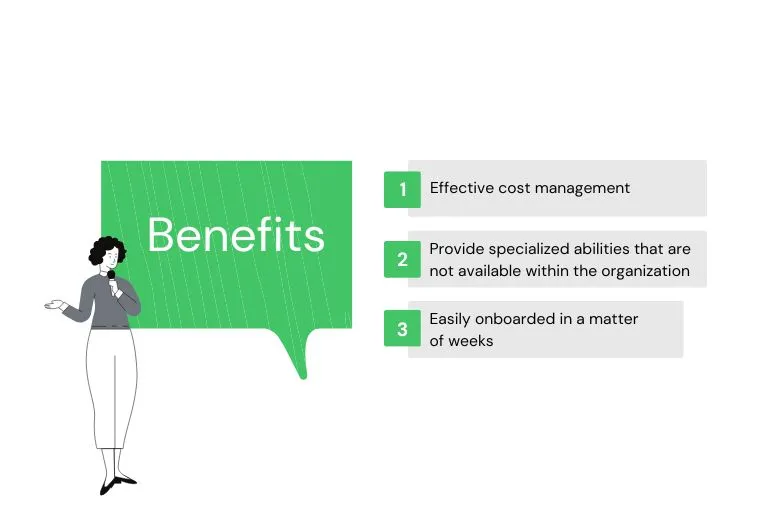In today’s fast-paced business environment, companies often face unexpected challenges that require swift and effective leadership. Interim management offers a strategic solution by providing experienced executives on a temporary basis to navigate crises, drive transformations, and maintain continuity. This approach ensures that your organization can address immediate needs without the long-term commitment of hiring permanent staff.
What is Interim Management?
Interim management involves the temporary placement of senior-level executives who provide specialized expertise and leadership for a defined period. Unlike consultants or freelancers, interim managers are hands-on leaders who actively contribute to achieving your business objectives during transitional phases.
Signs It’s Time to Hire an Interim Manager or Director
If you’re contemplating whether it’s the right moment to bring an interim leader into your organization, consider these key signs:
- Extended Absence of a Key Leader: When a pivotal manager or director takes a prolonged leave—be it for parental reasons or a sabbatical—it’s crucial to ensure their absence doesn’t disrupt operations. An interim manager can step in to maintain momentum and provide leadership during this period.
- Overburdened Team During Peak Seasons: Lean teams may save costs, but during peak operational periods, managers may become overwhelmed. This can lead to a decline in efficiency and project quality. To counteract this, an interim manager can offer temporary support, helping to manage workloads effectively during these busy times.
- Rapid Expansion: Quick growth demands swift adjustments. Whether you’re acquiring new clients, launching additional locations, or expanding services, your existing team may struggle to keep up. An interim leader can bridge the gap, ensuring current operations run smoothly while facilitating expansion efforts.
- Adapting to New Technology: Introducing new technology—like a content management system or project management tool—can be challenging for your team. Even with vendor assistance, employees may need ongoing support. An interim manager with relevant tech expertise can expedite the transition, ensuring a smoother adoption process.
- Unanticipated Leadership Vacancies: Sudden departures can disrupt strategic plans. Whether you’re preparing to promote internally or conduct an external search, an interim director can keep your team focused and productive in the interim. They provide stability until a permanent leadership solution is established.
Hiring an interim manager or director when facing any of these scenarios can help your organization navigate transitions smoothly, minimizing disruptions and maintaining momentum.
How Can an Interim Manager Assist a Rapidly Growing Company?
Rapid expansion brings exciting opportunities—and significant challenges. An interim manager provides invaluable support during this critical phase. Here’s how:
- Maintaining Client Satisfaction: When your focus shifts to expansion activities, an interim manager ensures that your existing clients continue to receive top-tier service. This temporary leader manages daily operations, allowing your permanent team to concentrate on scaling up without compromising current relationships.
- Accelerating New Initiatives: Whether you’re opening a new branch or launching a new service, time is of the essence. An interim manager helps get new locations or teams up and running efficiently, ensuring you capitalize on growth opportunities faster than your competitors.
- Flexible Leadership Transition: One of the biggest advantages of interim management is its flexibility. These professionals step in as temporary leaders during periods of transition. Once your company stabilizes or your full-time team is ready to take over, the transition is seamless, with no lingering discomfort or disruption.
- Strategic Growth: Interim managers aren’t just caretakers; they bring a wealth of experience and strategic insight. They can help reimagine roles and optimize team structures, setting the stage for sustainable long-term growth.
In the fast-paced environment of business expansion, an interim manager is your secret weapon to maintain momentum and stability simultaneously.
Who is an Interim Manager?
Interim Managers are typically senior executives capable of driving transformation projects, crisis management, turnaround, corporate restructuring, or handling unexpected critical exits. They identify the problem, propose a solution, oversee implementation while training internal personnel, and then move on. Common roles held by interim managers include Chief Finance Officers (CFOs), Chief Information Officers (CIOs), and Leadership Executives.
They have a track record of successfully reforming firms at various stages of their life cycles. As knowledge workers and change drivers, they possess extensive managerial skills to meet short-term, project-specific, or changeover requirements.
For example, consider a manufacturing company that needs to adopt an automated digital solution within its manufacturing chain. An Interim Manager would be crucial for project management, ensuring a seamless transition and effective communication between internal teams and external vendors.

What Makes a Good Interim Manager?
A good interim manager possesses a unique blend of skills and qualities that enable them to lead effectively during transitions:
- Emotional Intelligence: The ability to understand and manage emotions in themselves and others is essential. This fosters trust, collaboration, and a positive work environment.
- Strategic Thinking: Interim managers are driven by results. They use their outsider perspective and extensive experience to identify opportunities and devise innovative solutions to immediate challenges.
- Clear Communication: They articulate the company’s message, values, and vision clearly, ensuring alignment across all levels of the organization. Effective communication also involves active listening, which helps in integrating valuable feedback.
- Confident Decision-Making: Interim managers make decisive choices that balance short-term needs with long-term objectives. They establish clear metrics to track progress and ensure accountability.
- Empowerment: Rather than micromanaging, they empower team members to excel in their roles, enhancing overall performance and capabilities.
By combining extensive experience with these critical skills, interim managers serve as transformative leaders, driving significant change and positioning companies for success in the short term and beyond.
Benefits of Interim Management
Engaging an interim manager offers numerous advantages:
- Speed of Deployment: Interim managers can often be onboarded within days, allowing organizations to respond quickly to challenges.
- Specialized Expertise: They bring targeted skills relevant to specific issues, ensuring the organization benefits from their extensive knowledge and experience.
- Objectivity: As external hires, interim managers can make tough decisions without being influenced by internal politics, which is crucial during sensitive transitions.
- Cost Efficiency: Hiring an interim manager can be more cost-effective than hiring a permanent executive, especially when a long-term commitment isn’t necessary.
- Improved Performance and Efficiency: By introducing new skills, processes, and tools, interim managers can enhance performance, efficiency, and innovation within the organization.
- Better Cost Control: Interim managers help maintain strict financial oversight and provide proper direction, crucial for companies that have lost focus and capacity to manage critical business tasks.
- Quick and Efficient Onboarding: Interim managers can be onboarded in a matter of weeks, providing the necessary competencies to keep the firm running during urgent circumstances.
- Relief for Staffing Constraints: They provide relief for firms facing staffing constraints while infusing vital knowledge into the organization.
Risks and Challenges of Interim Management
While interim management offers significant benefits, it also presents potential risks and challenges:
- Finding the Right Fit: It can be tough to find the ideal interim manager, especially in competitive and dynamic industries. Organizations may need to act quickly and rely on trusted sources to identify competent candidates.
- Integration into the Team: Integrating an interim manager into your existing team can be challenging. Managing expectations and addressing any cultural or interpersonal issues is essential for a smooth transition.
- Cost and Disruption: Hiring and potentially replacing an interim manager can be expensive and disruptive, especially if the project is complex or unpredictable.
- Contract Negotiation and Administration: Organizations must invest time and resources in negotiating contracts, ensuring compliance, and maintaining quality standards.
- Exit and Transition: Ensuring a smooth exit and transition process when the interim manager’s tenure ends is crucial to avoid disruptions in leadership and operations.
It’s essential to carefully manage these risks by thoroughly vetting candidates, establishing clear expectations, and planning for a seamless transition once the interim period concludes.
Steps to Hire an Interim Manager
Securing an interim manager quickly can help your organization harness essential expertise and adaptability. Here’s how to proceed:
- Identify Your Needs: Clearly define the skills and experience your organization requires. Consider both current challenges and future objectives to ensure the candidate will be a great fit.
- Research Qualified Candidates: Look for professionals with a proven track record in your industry. Websites like LinkedIn, industry-specific networks, or interim management agencies can be valuable resources.
- Partner with a Recruitment Firm: Engage with reputable agencies specializing in interim management. They can streamline the search and vetting process, presenting you with top-tier candidates.
- Conduct Interviews: Organize interviews to assess not only their technical acumen but also their cultural fit. Consider including task-based assessments relevant to your immediate goals.
- Negotiate Terms and Onboard: Once you’ve identified the right candidate, agree on terms and conditions, including length of engagement and deliverables. Plan a thorough onboarding to integrate them smoothly into your team.
By following these steps, your organization can quickly benefit from the strategic expertise of an interim manager. Start today and empower your business with the skills needed for success.
Frequently Asked Questions
1. How can an interim manager help when a manager or director leaves unexpectedly?
An interim manager can swiftly step in to maintain team focus and achieve organizational goals during the transition period. They provide temporary leadership, ensuring continuity and stability until a permanent replacement is found.
2. What role does confident decision-making play in interim management?
Confident decision-making is crucial as interim managers must make firm, thoughtful choices that guide the organization through transitional periods. This involves balancing short-term needs with long-term objectives, fostering team trust and alignment.
3. How does strategic thinking benefit an interim manager?
Strategic thinking enables interim managers to identify opportunities and innovative solutions quickly. Their ability to adapt and make informed decisions guides organizations through complex challenges, advancing immediate goals and positioning the company for long-term success.
4. How can an interim manager help during a company’s busy season?
During peak operational periods, an interim manager can reduce managerial overload, enhance team efficiency, intensify quality assurance, and facilitate continuity. They provide strategic support that elevates team performance when it matters most.
5. Why is clear communication crucial for interim talent?
Clear communication ensures alignment and cohesion within the organization. It keeps teams focused on key objectives, facilitates two-way interaction, and empowers employees by making them feel valued and heard, thereby boosting morale and productivity.
6. Why is emotional intelligence important for an interim manager?
Emotional intelligence allows interim managers to navigate complex interpersonal dynamics effectively. It aids in setting a strategic vision, building trust, fostering collaboration, making decisive yet empathetic decisions, and empowering employees, leading to a positive work environment.
Conclusion
Interim management is a powerful tool for businesses facing unexpected challenges, rapid growth, or significant transitions. By engaging experienced interim managers, organizations can ensure continuity, drive strategic initiatives, and achieve substantial improvements without the long-term commitment of hiring permanent executives.
Whether you’re dealing with a sudden leadership vacancy, managing a critical project, or navigating through a period of significant change, interim management provides the flexibility and expertise needed to maintain momentum and achieve your business goals.
Ready to see how an interim manager can benefit your business? Contact us today to learn more about our interim management solutions.
People Also Read




 anywhere
anywhere  anytime
anytime